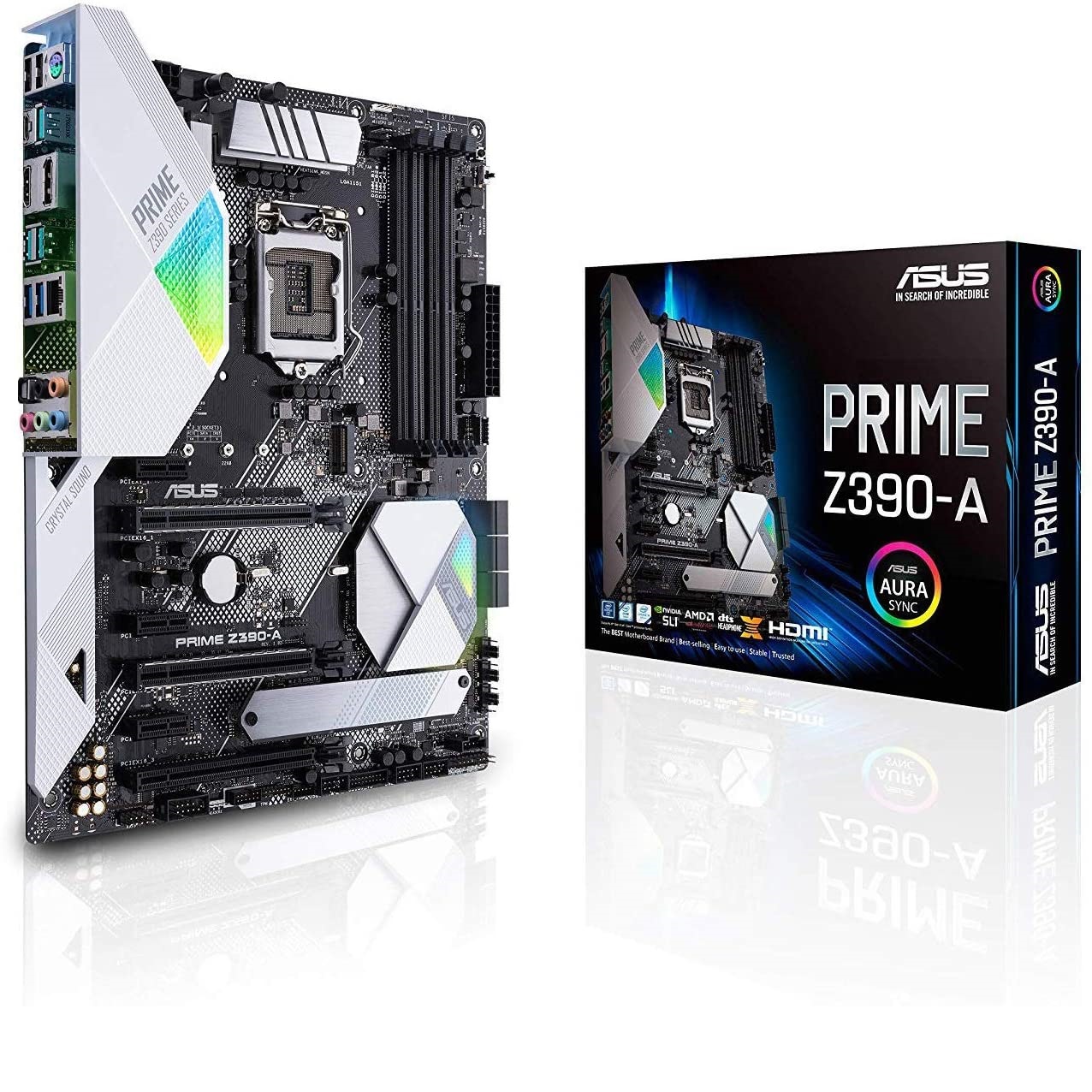
- Brand ASUS
- Windows 10
- 8th Generation/li>
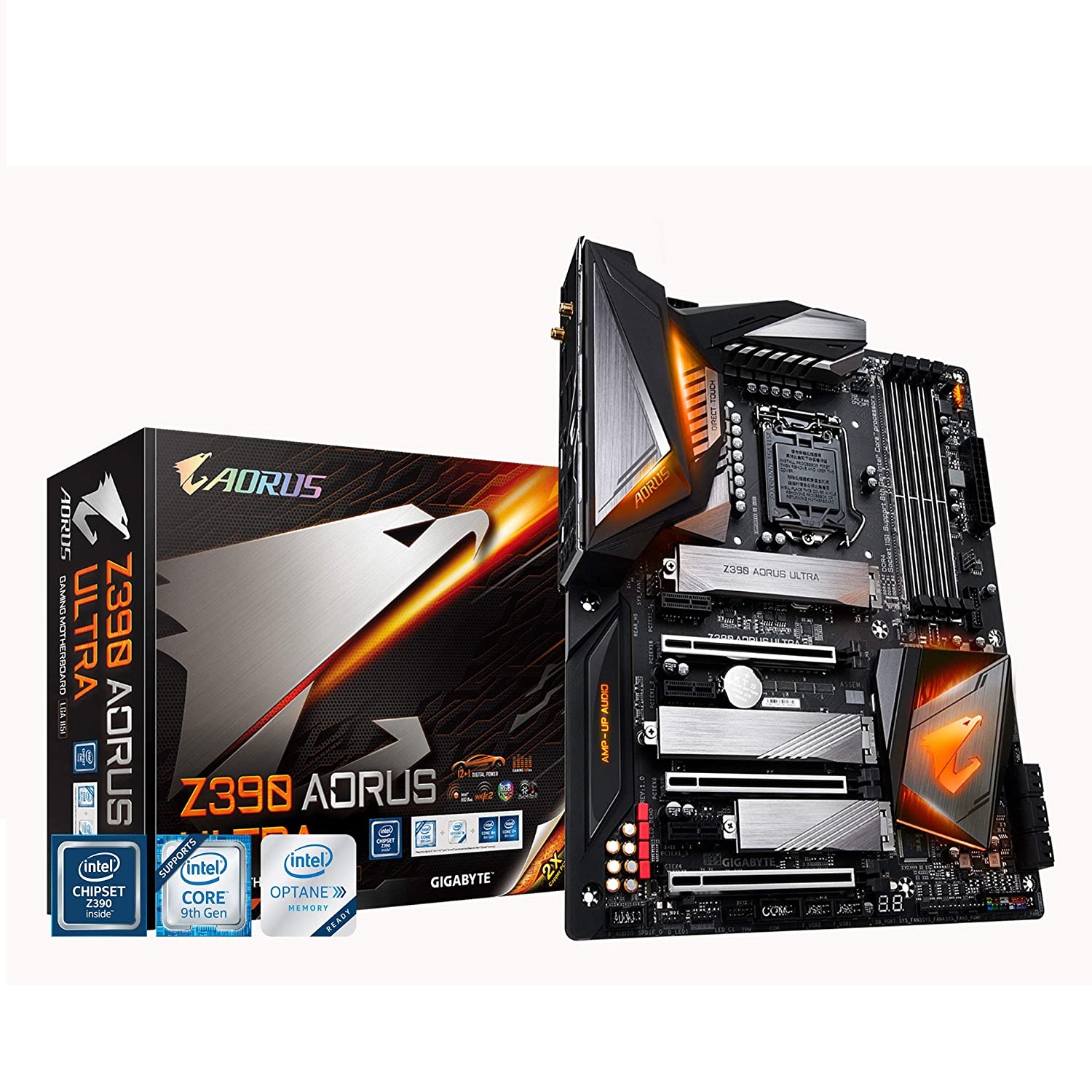
- Brand Gigabyte
- 4400 MHz
- 10000 TB
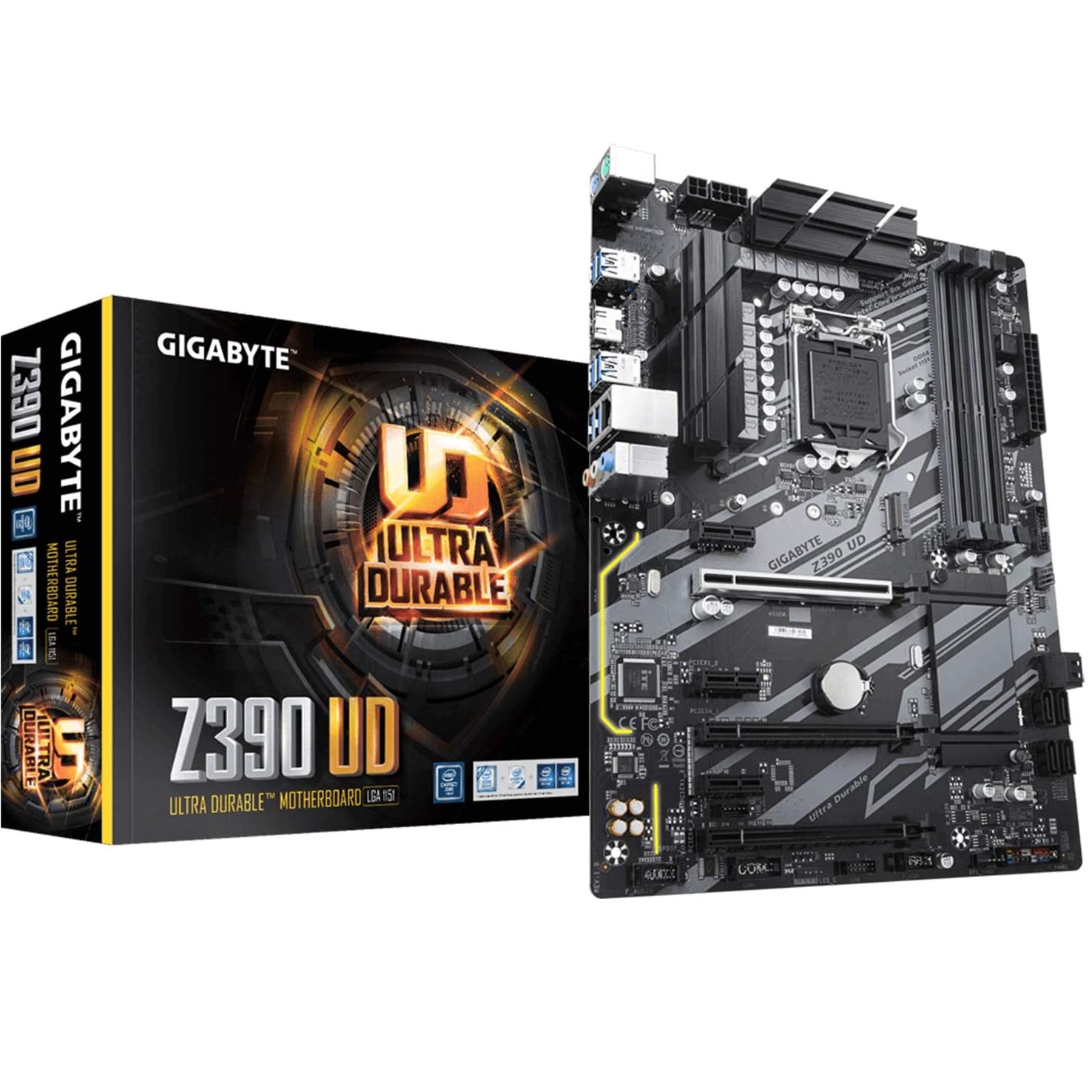
- Brand Gigabyte
- 10000 TB
- 4400 MHz
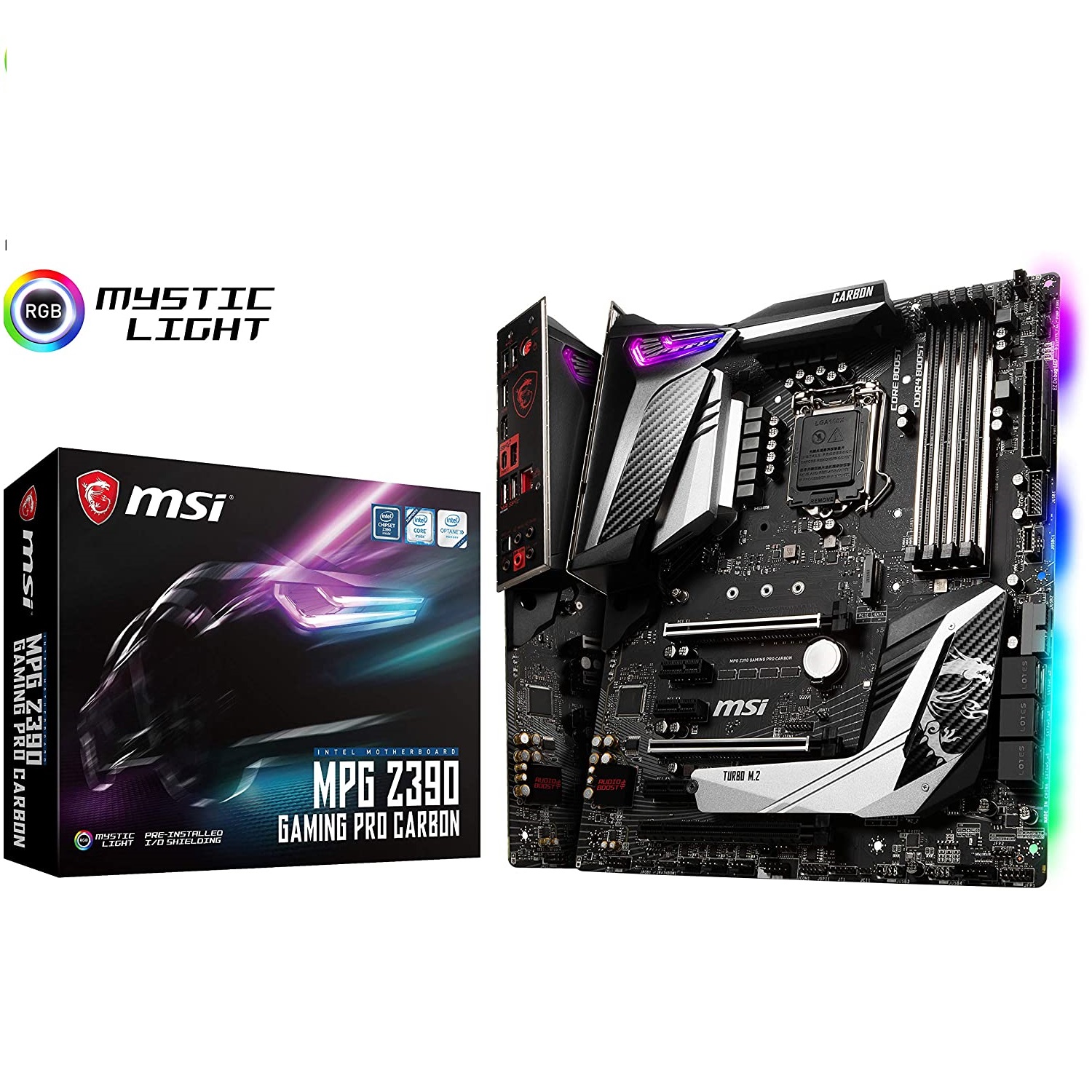
- Brand MSI
- Windows 10
- MPG Z390 GAMING
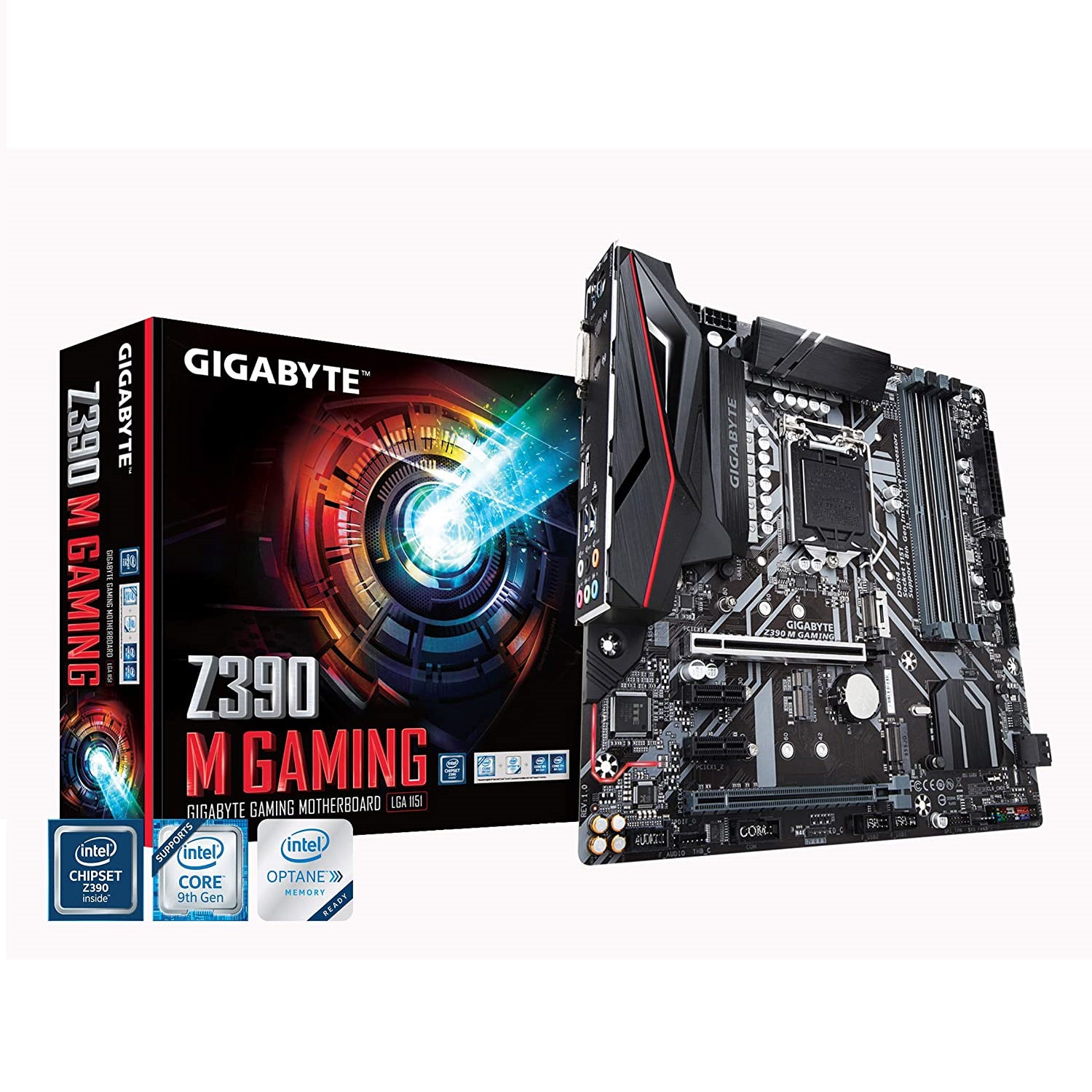
- Brand Gigabyte
- 4400 MHz
- 10000 TB
Choose the Best Gaming Motherboard
Customer’s Choice: the Best Rated Gaming Motherboards
1 users answered this survey. Please help us improve this review!
Intel’s Core i7 9700K is one of the best modern processors on the market for gaming. If you are looking to build a new gaming PC or upgrade your current setup, then you will need a motherboard that can handle this powerful processor. Also, it is important to find a motherboard that has the features and ports you need.
When choosing a motherboard for your new build or upgrade, there are several factors you need to consider. The most important factor is what type of processor you plan to use. For example, if you are using an AMD processor then you will need a motherboard that is compatible with AMD chipsets. Similarly, if you are using an Intel chip then you will need a motherboard that uses an Intel chipset.
In this article, PC gaming experts will take a look at some of the best gaming motherboards for the i7 9700K. We will also provide some tips on what to look for when choosing a motherboard, and offer our recommendations for the best products on the market.
Table of Contents
ASUS Prime Z390-A Motherboard – the Editor’s choice!
 ASUS Prime Z390-A Motherboard is designed with 3 hardware safeguards, ensuring readability and durability.
ASUS Prime Z390-A Motherboard is designed with 3 hardware safeguards, ensuring readability and durability.
The Safe Slot Care (patented) and LAN Guard protect your motherboard against damage, while the M.2 speed connectivity allows you to take advantage of the latest high-speed storage devices.
Additionally, the Fortified PCIe slots help to prevent accidental damage and provide stability for your graphics card.
Lastly, this motherboard supports Asus Optimum II and USB 3.1 Gen2 ports for even more flexibility when connecting peripherals.
This Asus mobo can be perfect for gaming! It features patented Safe Slot Care to protect your slots, LAN Guard to keep your Ethernet connection safe, and M.2 speed connectivity so you can get the most out of your SSDs. Plus, it has decent overclocking capabilities and supports Asus Optimum II and USB 3.1 Gen2 ports.GIGABYTE Z390 AORUS ULTRA Motherboard – the best for overclocking!
 The motherboard experts at GIGABYTE have outdone themselves with the Z390 AORUS ULTRA. It’s a durable piece of hardware that’s perfect for overclocking, thanks to its great VRM cooling features.
The motherboard experts at GIGABYTE have outdone themselves with the Z390 AORUS ULTRA. It’s a durable piece of hardware that’s perfect for overclocking, thanks to its great VRM cooling features.
In addition, the updated BIOS makes it easy to get the most out of your CPU. And if you’re looking for a gaming-friendly motherboard, look no further.
The Z390 AORUS ULTRA has three M.2 slots with heatsinks and an optimized CPU power delivery plane.
If you’re looking for a motherboard that can handle anything you throw at it, look no further than the GIGABYTE Z390 AORUS ULTRA. This board is built to last, with durable construction and great features for overclocking. Moreover, the updated BIOS ensures compatibility with the latest CPUs. And if that’s not enough, there are three M.2 slots with heatsinks to keep your data running fast and cool.GIGABYTE Z390 UD Motherboard – the best VRM!
 Are you looking for an affordable motherboard that still offers great features? Look no further than the GIGABYTE Z390 UD. This board has a superb VRM, which means you can overclock your CPU with ease. It also comes with some great cooling features, so your system will always run smoothly. Yes, it’s budget-friendly, so you can put your money towards other important components.
Are you looking for an affordable motherboard that still offers great features? Look no further than the GIGABYTE Z390 UD. This board has a superb VRM, which means you can overclock your CPU with ease. It also comes with some great cooling features, so your system will always run smoothly. Yes, it’s budget-friendly, so you can put your money towards other important components.
At its price range, it has the best VRM and cooling option out there, and it is comparable to all other entry-level boards in terms of features. The layout of the board is excellent, and you get everything you need, making this one of the greatest things you could hope for at this cost.
Experience the power of your next PC build with the GIGABYTE Z390 UD Motherboard. This budget-friendly option provides everything you need to get up and running, including an awesome VRM for stable power delivery. Also, there are adequate cooling features to keep your components running smoothly. In addition, its user-friendly layout makes setup a breeze!MSI MPG Z390 Gaming PRO Carbon Motherboard – the best for beginners!
 This amazing MSI motherboard comes with an excellent price tag and offers great voltage regulator temperatures. It also supports dual-channel DDR4 memory, so you can build your dream gaming PC without any trouble.
This amazing MSI motherboard comes with an excellent price tag and offers great voltage regulator temperatures. It also supports dual-channel DDR4 memory, so you can build your dream gaming PC without any trouble.
Finally, Windows 10 users will be happy to know that this motherboard is fully compatible with their operating system.
This MSI motherboard is perfect for gamers who want to overclock their CPUs and get the most out of their systems. It features great pricing, good voltage regulator temperatures, and dual-channel DDR4 memory.
GIGABYTE Z390 M Gaming Motherboard – the best for VR!
 Are you looking for a motherboard that can handle all your gaming needs without breaking the bank? Look no further than the GIGABYTE Z390 M Gaming Motherboard. This board is perfect for budget-minded gamers who want to get the most out of their hardware. It features great speed and performance, along with full-color RGB lighting that will give your system an edge over the competition.
Are you looking for a motherboard that can handle all your gaming needs without breaking the bank? Look no further than the GIGABYTE Z390 M Gaming Motherboard. This board is perfect for budget-minded gamers who want to get the most out of their hardware. It features great speed and performance, along with full-color RGB lighting that will give your system an edge over the competition.
What’s more, it supports new octa-core processors, so you can rest assured that your machine will be able to keep up with the latest games. And if things start to heat up, don’t worry – the Smart Fan 5 tech will take care of things and keep your system running smoothly.
The Buyer’s Guide
What Is the Function Of a Motherboard?
A motherboard is the main printed circuit board found in computers and other electronic devices. It holds many of the crucial components of the device and allows them to communicate with each other. The CPU, RAM, graphics card, and storage drives are all connected to the motherboard [1].
The motherboard also includes connectors for input/output devices such as a keyboard, mouse, monitor, and speakers. It also has connectors for power supply cables and antennas for wireless networking cards.
Motherboards come in a variety of sizes and shapes depending on the type of device they are used in. Desktop computer motherboards are typically larger than those found in laptops or tablets. Motherboards can also be custom-made for specific applications such as vehicles or medical equipment.
What Intel Generation Is i7 9700K?
The Intel Core i7-9700K is a 64 octa-core high-end performance x86 desktop microprocessor that was introduced by Intel in late 2018. This processor, which is built on Intel’s 3rd generation enhanced 14nm++ process, is based on the Coffee Lake microarchitecture [2].
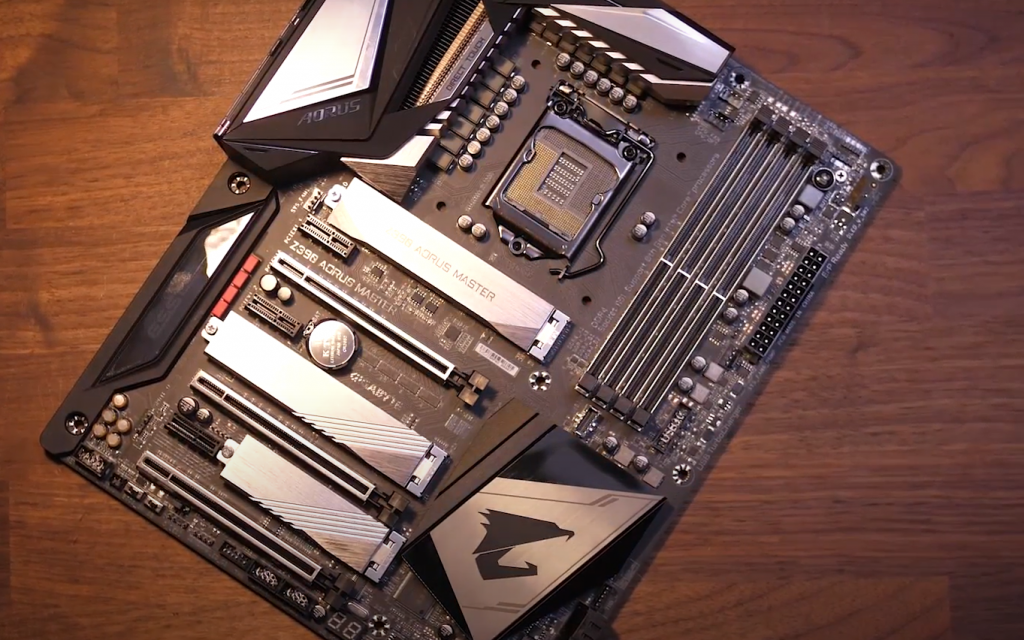
The i7-9700K is a 6-core chip with hyperthreading that runs at 3.6 GHz and has a 95 W TDP and a maximum Turbo Boost frequency of 4.9 GHz. This processor supports up to 128 GiB of dual-channel DDR4-2666 memory and an Intel UHD Graphics 630 GPU with 350 MHz clock speed and 1.2 GHz burst frequency.
Main Features:
Form Factor
First and foremost, you must select the size of the PC you wish to construct, as well as a motherboard that fits within those parameters. If you want to build a small PC, ITX or mini-ITX motherboards are appropriate. Otherwise, ATX motherboards will suffice.
There are three basic alternatives with various characteristics, interface layouts, sizes, and compatibility. The biggest of the lot is ATX, which comes after that is Micro-ATX, a mid-sized board. Mini-ATX is the lightest form factor with a tiny design.
Obviously, the number of interfaces or slots on the motherboard is inversely related to its size. If you want to add more expansion modules and third-party open-source shields, the ATX form factor is the way to go. Micro-ATX and Mini-ATX are two alternatives if there is no need for extra space or add-ons. Make a note of your requirements for PCB slots or connections before settling on the board [3].
The form factor of the motherboard is also important to consider. Some motherboards are designed for specific processors, such as AMD or Intel. Make sure you select a motherboard that is compatible with the processor you have chosen.
The socket of the motherboard is also important to consider. The socket is where the processor is inserted, and there are many different sockets available. Again, make sure you select a motherboard that has a compatible socket for your chosen processor.
Lastly, be sure to check the I/O shield compatibility before making your purchase. Some motherboards have specific shapes or sizes that must match up with the corresponding I/O shield. If they do not match, then you will likely have difficulty installing the motherboard into your PC case.
Chipset
The chipset of the motherboard governs many of its features and capabilities. There are many different chipsets available from a variety of manufacturers, so it is important to research which one is best for your needs.
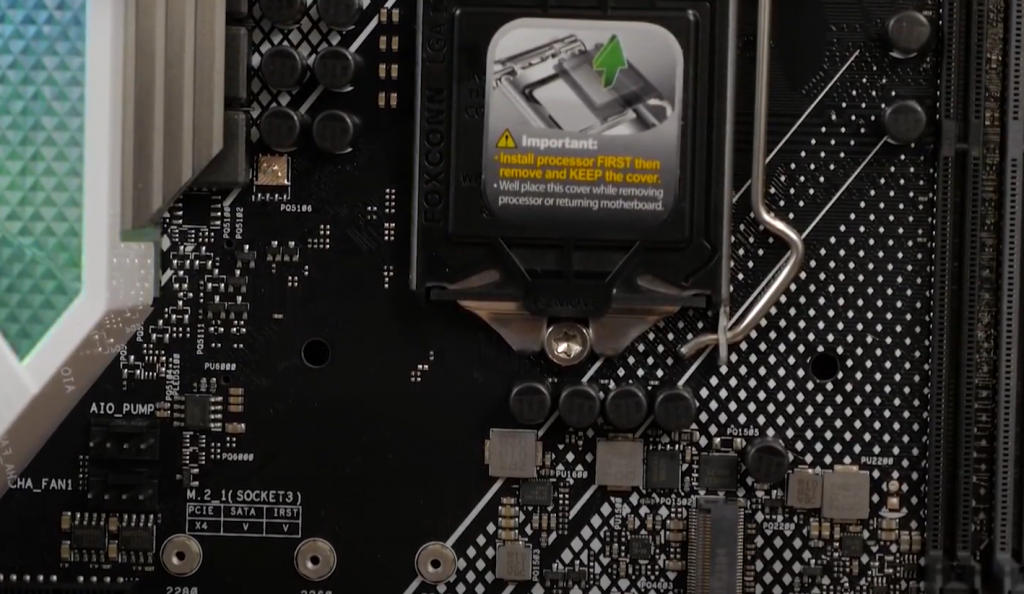
The most prominent chipset manufacturers are Intel and AMD. Each of these companies has its own range of chipsets designed for specific purposes, so it is important to select the appropriate one for your PC build.
Always check to see whether a new motherboard supports the CPU you want. Because the Z390 motherboards have LGA1151 sockets that accommodate both 9th- and 8th-Gen Intel CPUs, they will be the best option to select from in this instance.
AMD Ryzen CPUs work best with AMD X470 or B350 chipsets, while Intel CPUs require an H310, H370, B360, or Z370 chipset motherboard.
Memory Speed
It’s an individual choice to select a motherboard with 2 or 4 DIMM slots. However, bear in mind the maximum memory speed supported by the motherboard.
A few motherboards are limited to memory speeds of up to 1000-2000MHz. While there are other excellent choices that can reach speeds of up to 4500MHz [4].
With the advent of DDR, there are more choices and higher memory speeds. If you have a budget to go for it then select the best motherboard with high-speed support. Otherwise, you should choose between either one or two slots in preference to speed over other features.
The motherboard also has a part to play in the overall speed of your gaming rig. Make sure that you get one that is compatible with the CPU and GPU that you are using. Some motherboards on the market have better features for overclocking than others. If this is something you’re interested in, then make sure to do some research before buying.
CPU Socket
When building a PC, the most important thing to consider is which motherboard will be compatible with all of the components you’ll install, especially the CPU. Experts have already decided to use an i7-9700K processor in this case, so see whether the motherboard has the correct CPU socket for this chipset. Because the i7 9700K is a 9th Gen Intel chip, Z390 Motherboards are ideal for this chipset.
Because the Z390 motherboards are compatible with Intel’s 9th and 8th generation CPUs, they include LGA1151 sockets, which accommodate all 9th Gen as well as 8th Gen processors. Over on the Z-series side of things, you’ll find Z370 Motherboards. But keep in mind that the Z390 is a better option than it since it provides greater system stability and overclocking potential.
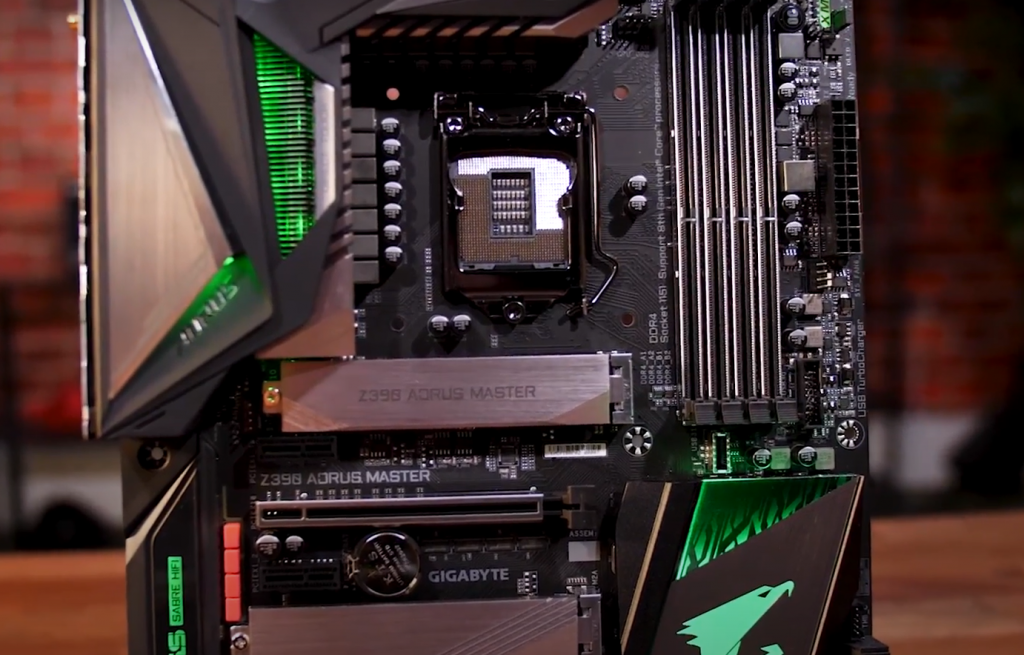
In the case of AMD processors, instead of Z390 Motherboards, you should choose X470 and B450 motherboards. Because these are the only two motherboards that have an AM-DDR CPU socket, which is compatible with all Ryzen CPUs.
Memory Slots
Depending on the memory slots, you can install multiple RAM sticks in your PC easily. Because dual-channel configurations increase performance by allowing both channels to communicate simultaneously.
High-end motherboards generally have four or more memory slots that allow you to install up to 64GB of RAM. But don’t buy a budget motherboard with only two DIMM slots just because it’s cheaper. Because when more slots are available, they also provide better system stability and overclocking potential.
As far as choosing between single/dual/quad channels is concerned, quad-channel is the best option. But if your system doesn’t have four memory slots, don’t worry because dual-channel works just fine. Also, it’s worth mentioning that DDR technology is now outdated and has been replaced by DDR (Double Data Rate) RAM, which provides better speed and performance in gaming PCs.
So you should go for a motherboard with at least two DIMM slots that can accept up to 64GB of RAM (or more), but any less than 16GB won’t be enough for today’s demanding games unless you’re a casual gamer who only plays strategy titles like Civilization or Total War. So if necessary upgrade your motherboard later on when you need more space/bandwidth!
Leaving aside the technicalities for a moment, if your RAM doesn’t have more storage, it simply implies that data retrieval will take somewhat longer. Recollection of knowledge from the RAM is easier than retrieving it from the hard drive. Look for motherboards with at least 16GB of RAM.
PCI Slots
PCI slots are the expansion slots that you’ll find on all motherboards. The PCI slots are generally utilized to add video cards, sound cards, LAN cards, and other devices to a PC.
When experts talk about graphics cards, we’re talking about 16X PCI slots on the motherboard since they provide the best performance output. Other PCI slots with various configurations exist, such as 8X, 4X, and 1X [5].
The slots are nearly identical, so be cautious while building the PC and use the correct slot. You can put a 16X card in an 8X slot, but it won’t be quite right since the slot will limit the power to 8X because it cannot push itself any further. If you’re creating a gaming PC, make sure there are PCI x16 slots on the motherboard; they’re particularly good for inserting a graphics card.
Another useful thing to know about PCI slots is that they come in two sizes, full and half. The motherboard’s size will determine the number of slots.
A tiny ITX case with a mini-ITX motherboard may only have one PCI x16 slot because it’s so small, while ATX cases (and their motherboards) usually have several available slots for expansion cards.
If you’re building an entry-level PC that doesn’t use much power, such as a basic office computer or media center, there will be less than four 16x PCIe ports available on most motherboards.
However, if you’re building a high-end gaming PC with an overclockable processor and multiple video cards in SLI or Crossfire mode, it’s important to have enough expansion slots available on your motherboard.
SATA Ports
Normally, there are no problems with SATA slots on any motherboard since manufacturers generally provide many slots.
However, you should verify that the slots are of the most up-to-date generation to utilize your HDD and SSD drives [6].
In the case of SATA ports, double-check that they are 6 GB SATA ports since they provide high data transfer rates.
To put it another way, most manufacturers name them SATA 3.0 ports, which is essentially the same thing. The last thing to check is that the SATA3.0 ports are linked to the USB 3.0 interface so you can enjoy optimum read/write speeds.
If you’re looking for a gaming motherboard that can handle the newest hardware, then be sure to check out our list of the best gaming motherboards for i386.
Wi-Fi
Most gamers only play on wired LAN connections, so WiFi is typically not required. However, if you don’t have a direct internet connection or the router isn’t within range of your computer, a Wi-Fi-compatible motherboard is required.
To ensure that the motherboard has the most up-to-date Wi-Fi card, check for supported Wireless standards. Although Wi-Fi with 802.11n standard can manage 100Mbps speeds without difficulty. It’s preferable to choose a motherboard with 802.11ac or Wi-Fi 5 support since it offers superior speed to n-standard Wi-Fi [7].
There are 3 types of antennas available on motherboards:
- Internal antennas are permanently attached to the motherboard and can be difficult to replace if they’re damaged;
- External antennas are connected to the motherboard by a cable and offer more flexibility when it comes to positioning them for better signal reception;
- Detachable antennas can be completely removed from the motherboard, which is ideal if you want to use an aftermarket antenna that provides better performance;
If you plan on using your computer in close proximity to other electronic devices like microwaves or cordless phones, you may experience interference issues with the Wi-Fi signal. In this case, it might be necessary to purchase a board with built-in wireless isolation capabilities. This technology prevents signals from other devices from interfering with your Wi-Fi signal.
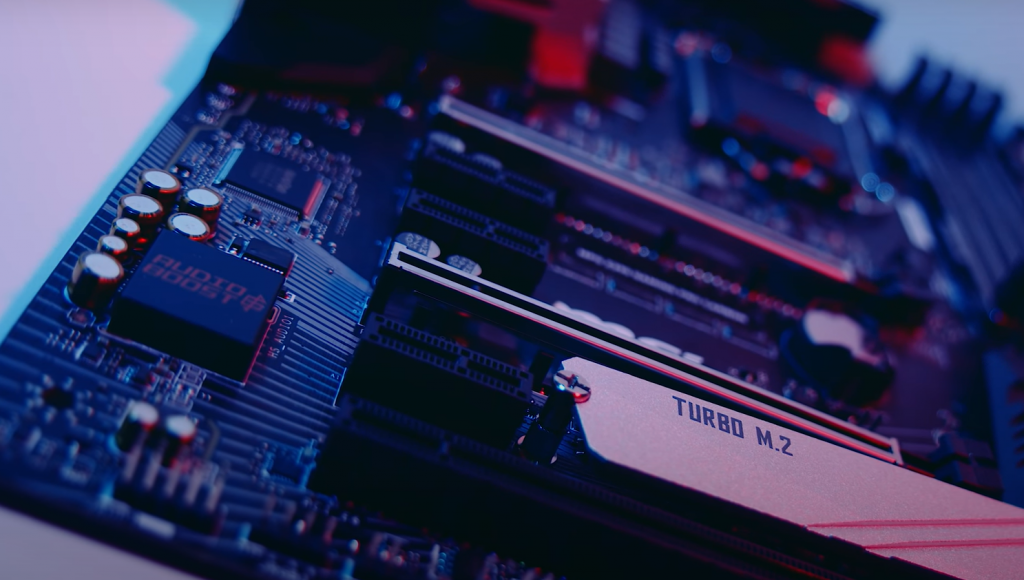
The best gaming motherboards for i79700K will support the latest wireless standards, including 802.11ac and Wi-Fi, which provide up to three times the speed of older n-standard cards. The board should also have good antenna placement for optimal reception as well as built-in isolation capabilities to prevent interference with other electronic devices in close proximity.
i7-9700K Cooling Solutions
The i7-9700K gets quite hot when under heavy use. It won’t reach temperatures as high as the Core i9-9900K, but temperatures of around 176F should be expected while under load.
The CPU does not include a built-in cooler, so you’ll need to invest in a quality cooling solution if you want to overclock it. Overheating is the last thing you want with your CPU.
There are several tried-and-true air coolers, such as the Noctua NH-D15S, and be quiet! Dark Rock 4 should be enough in the event you don’t want to overclock the CPU.
PC gaming experts recommend buying pro versions of the aforementioned coolers if you want an air cooler capable of cooling speeds up to 5.0GHz: the Noctua NH-D15 and be quiet! Dark Rock Pro 4, as well as be quiet! Dark Rock Pro 3 [8].
If you want to go with a liquid cooling system, there are several options available.
Of course, with liquid cooling, you must consider a number of factors:
- the size of your case – whether you want an AIO solution or just want the CPU to be cooled;
- the case support for various sized radiators;
If you’re primarily interested in liquid cooling systems because they are quieter, you may instead invest in a quiet PC case that is built specifically to minimize noise.
The best liquid cooling options for the Core i7-9700K are NZXT Kraken AIO models, such as the NZXT Kraken X62. The Corsair H1xx series and the Cooler Master ML line are two more alternatives.
FAQ
Is the i7 9700K overkill for gaming?
No, not at all. The i99700K has two more cores than the i7700K and that’s why it is a better choice for gaming, streaming, or video editing. It can also be overclocked in order to squeeze more power out of it. However, if you are only going to play games on your PC then an i55600k should suffice as well and save you quite some money too.
The Core i7 9700K, on the other hand, is an exceptional gaming processor. With eight cores and eight threads of Coffee Lake refreshes, and a maximum boost clock of 4.9GHz, this chip has everything it takes to produce fantastic FPSs and a little more [9].
Is the Z390 a good motherboard?
The Z390 motherboards from ASUS, Gigabyte, and MSI are designed to work flawlessly with Intel’s 8th and 9th generation Coffee Lake CPUs. They’re made for high-end PCs with features such as updated I/O connections, integrated Wi-Fi, and more. This ensures maximum performance and top-notch hardware compatibility.
The Z390 chipset is the latest and most advanced platform for Intel CPUs. It offers a number of improvements over the previous generation, including better overclocking capabilities, more USB ports, and updated firmware. If you’re looking to build a high-end gaming PC with an iBUYPOWER Pro or Revolt II system, then we recommend using a Z390 motherboard [10].
All three major motherboard manufacturers have released multiple models of Z390 motherboards. ASUS has twelve different models, Gigabyte has six, and MSI has ten. This can make it difficult to decide which board is right for you.
Is the i7-9700K compatible with Z370?
The long and simple answer is no. The new chips are also on the LGA1151v2 socket, so they’ll run on your older H310, B360, H370, and Z370 mainboards if the manufacturer includes a BIOS that enables the use of the new CPUs. As usual, you’ll need to update the BIOS when newer CPUs are introduced for an already existing chipset.
However, you’ll have to consider the significantly greater power draw of the new i7 and i9 CPUs, which implies that if you want one of the new high-end SKUs, your motherboard will require a good VRM for power delivery. If you already have one of the higher-tier Z370 motherboards, you should be able to use the Coffee Lake S eight-core CPUs without any problems.
If you have an entry-level/lower-level motherboard, however, there’s a chance you’ll run into issues with the increased power draw of the processor, especially if you want to overclock it.
You can also try flashing the BIOS yourself with a program like Easy BIOS Flash, but it’s not recommended. If you want to buy a Z370 motherboard for your 9th-generation Intel CPU, keep in mind that you’ll have to update the BIOS, which is most of the time only possible if you already own an 8th-gen processor unless the board has a USB BIOS flashback function.
Z390 chipsets are backward compatible with Z370 motherboards, but they do not include the older Coffee-Lake CPUs. On the other hand, new Z390 motherboards work with both existing and future Coffee-Lake CPUs; you’ll probably be better off if you buy a Z370/B360 motherboard for them since they’re considerably more powerful than the new Z390 ones [11].
Is i7 9700K fast?
The Intel Core i-9700K is one of the top processors in terms of performance and is pricey. It comes with eight cores and threads, which means it can handle multi-threaded tasks (like video editing). On average, the processor takes less than a second to render videos at 1080p resolution from its base clock speed. The processor also has 16 MB cache memory that helps reduce latency when gaming or other applications require fast access times for data storage [12].
The i-9700K is a high-end desktop processor and is not intended for laptops. If you are looking for a powerful mobile processor, consider the Intel Core i-8650U.
The laptop version of the 8650 has four cores and eight threads with a base clock frequency of just one point five gigahertz. That said, it can be overclocked to reach up to four gigahertz with ease, making it an excellent performer for gaming and other demanding tasks on the go.
Overall, if you are looking for a powerful desktop replacement or want to build a new high-end gaming PC from scratch, then the Intel Core i-9700K should definitely be at the top of your list.
Is the Intel i7 9700KF good for gaming?
Yes, it’s a fantastic CPU and you won’t have to worry about overclocking or anything like that to get excellent performance from it. It can overclock very well with the help of good mobo and adequate ventilation, but this is more of a “sport” than a requirement.
The best gaming motherboards for i-9700K are those that offer good features and performance. Some of the key factors to look for when shopping for a motherboard include compatibility with your CPU, number of PCIe lanes, memory type and speed, M.I.T. options, USB ports, fan connectors, and SATA III ports. In this article, we will review three different motherboards that fit the needs of gamers who want to use an i-9700K processor [13].
What chipset does i7 9700K use?
The Intel 9th generation Core i7 9700K processor requires a motherboard with an LGA 1151 socket and 300-series chipset. The “K” in the model name 9700K stands for an unlocked CPU that allows overclocking. To enable CPU overclocking, you’ll need a motherboard with the Z390 or Z370 chipset [14].
What is the difference between Z370 and Z390?
The two most significant distinctions between Z370 and Z390 are integrated USB 3.1 Gen 2 (10Gbps) connectivity and WiFi 802.11ac functionality. Although some motherboard manufacturers added them with separate controllers, neither of these features was available on Z370. Both of these features have now been incorporated into the chipset and may support up to six USB 3.1 ports [15].
Intel’s 8th and 9th generations of the mainstream Core processors share a lot of characteristics, so the Z390 chipset is mostly just an updated version of Z370.
Is the i7 9700K better than 8700K?
The i-Series of processors are Intel’s current high-end desktop CPUs. The 9000 series, which includes the i7700K and the i8700K, is a refresh of the 8000 series that offers slightly better performance for about the same price.
Some motherboard manufacturers have released BIOS updates that allow overclocking of the 9000 series chips beyond their stock speeds, so if you’re considering purchasing one of these processors, be sure to check whether or not your motherboard will support this.
Is 3.60 GHz good for gaming?
The speed of your CPU will come into play when textures/chunks must be loaded, but 3.6 GHz is sufficient for most games.
Some games will require more than 3.6 GHz to play at very high frame rates on higher settings. A Ryzen 5 2600, for example, won’t be able to output 120+ FPS in some new titles at higher settings. Those are mostly single-player action games that run at a slower pace, and 99 percent of gamers would be satisfied with 80-90 FPS [17].
Many new games are designed to be played at high frame rates, so you may need a more powerful CPU than the i-Series if you want to future-proof your purchase.
AMD has already released their third-generation Ryzen processors that compete with and in some cases outperform the 9000 series from Intel. If overclocking is important to you or if you plan on upgrading in the near future, then an AMD processor might be a better option for now.
Many factors go into choosing the best gaming motherboard for i-Series processors, including price, features, and aesthetics. In this guide, we’ll help make the decision easier by providing information about some of the best motherboards available for gamers who have chosen one of Intel’s latest processors.
When you’ve decided on a motherboard, the next step is to choose memory. Memory speed and capacity are crucial considerations when building your own gaming PC. If you’re looking for high-speed DDR RAM with large storage space, then this article will show you some of the best options available.
Does i7 9700K have thermal paste?
The paste that comes on the cooler may be pre-applied, but you will need your own otherwise. There is no CPU with paste applied to it. It does not (no CPU comes with thermal paste) [17].
What is the fastest CPU?
The AMD Ryzen ThreadRipper 3990X desktop PC processor, with 128 threads and a base clock of 2.9 GHz, and a max boost clock of 4.3 GHz, is the world’s fastest CPU in 2021. The CPU has a 2.9 GHz base clock and a 4.3GHz maximum overclock that allows for multitasking while keeping load times quick [18].
Is the Ryzen 7 3700X better than the i7 9700KF?
The 3700X compares favorably to the Intel i7-9700K in terms of performance, with a score of 921 compared to the 9780’s 931. When overclocked, however, the 3700X is 26% faster at 64-core computations but 13% slower for gaming and desktop (sub-eight-core performance) [19].
What socket is i7 9700K?
Its LGA 115x socket supports Intel Core I-series processors from the LGA1150/1151 sockets. The first board to support a socketed CPU was released by IBM in 1981, and it used an older socket design called “SOCKET 0” (or “SOCKET 00”) [20].
What RAM is compatible with i7 9700K?
The fastest RAM for an Intel Core i9 9700K CPU is DDR4, which has to use the full processing capacity of the Intel CPU. The I7 9700K can run at speeds ranging from 2133 MHz up to 3600 MHz (with overclocking) [21].
What Asus motherboard is compatible with i7 9700K?
The Z390 Motherboards are the best choice for this chipset since they come with LGA1151 sockets, which support all 9th Gen and 8th Gen Intel processors.
The ASUS ROG Strix Z390-E Gaming may not be the most cost-effective motherboard, but it’s one that boasts high-end components where it counts, such as voltage regulator modules (or VRMs). There’s also solid support for overclocking, a great BIOS to get acquainted with, as well as plenty of ports to connect everything up [22].
How many pins does the i7 9700K have?
No, the i7 processors do not have pins on the processor; in fact, they are located on the motherboard.
Useful Video: The 5 Best Motherboards For i7-9700K in 2020 / 2021
Final thoughts
If you’ve decided to upgrade your computer with the latest i7 9700K processor, it is important to find a motherboard that has all of the features you need. PC gaming experts have compiled this guide for those in search of their next gaming motherboard. Above there are some tips on what to look out for when choosing one and our recommendations for the best products on the market at various price points. Whether you want something basic or high-performance, we hope this article helps make your decision easier!
References:
- https://www.tutorialsweb.com/computers/pc-motherboard-1.htm
- https://en.wikichip.org/wiki/intel/core_i7/i7-9700k
- https://www.gamingexpert.net/best-motherboards-for-i7-9700k
- https://www.electronicshub.org/best-motherboard-for-i7-9700k/
- https://www.hp.com/us-en/shop/tech-takes/what-are-pcie-slots-pc
- https://whatsabyte.com/does-the-sata-port-matter
- https://www.electronicshub.org/best-motherboard-for-i7-9700k
- https://levvvel.com/best-motherboard-for-i7-9700k
- https://www.pcgamer.com/should-i-buy-intel-core-i7-9700k-cpu
- https://www.highgroundgaming.com/best-z390-motherboards
- https://premiumbuilds.com/knowledge-base/will-z370-motherboards-work-with-coffee-lake-s-i7-9700k-i9-9900k-cpus
- https://www.pcmag.com/reviews/intel-core-i7-9700k
- https://www.tomshardware.com/reviews/intel-core-i7-9700k-9th-gen-cpu,5876.html

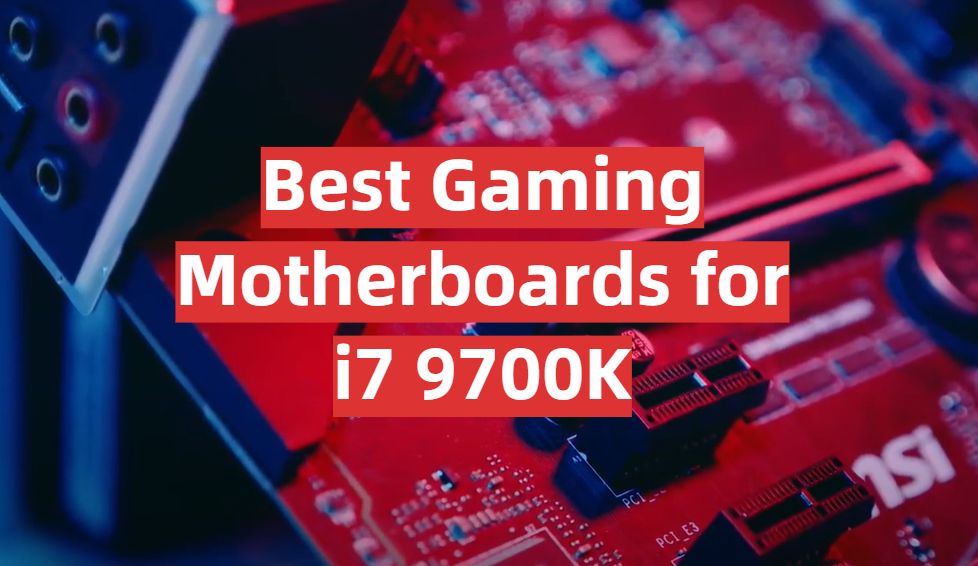


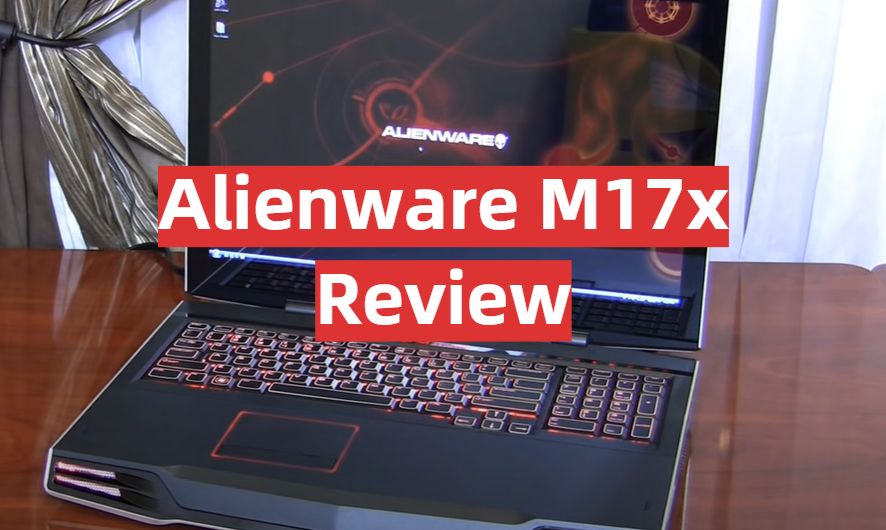
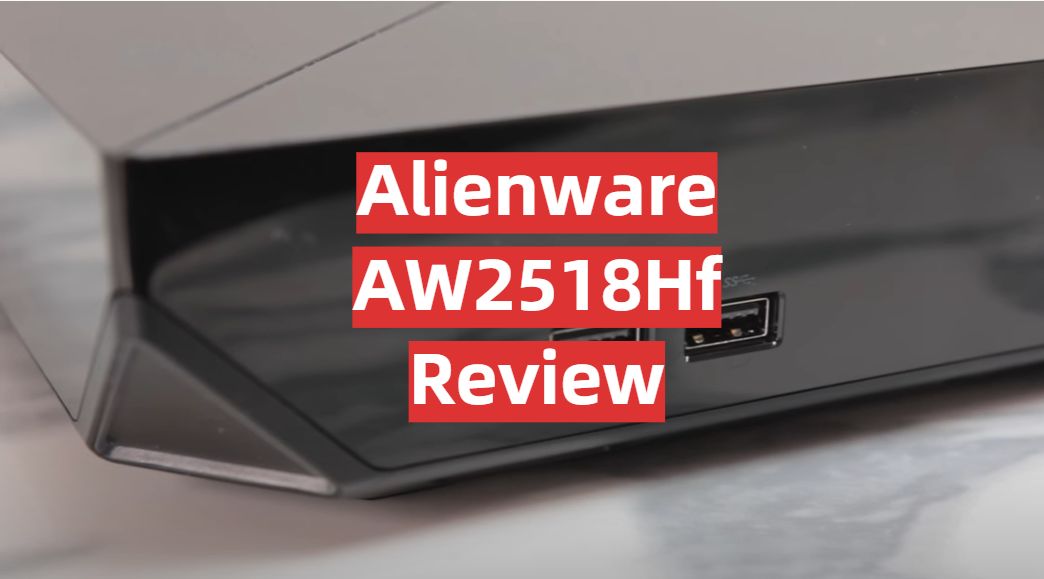
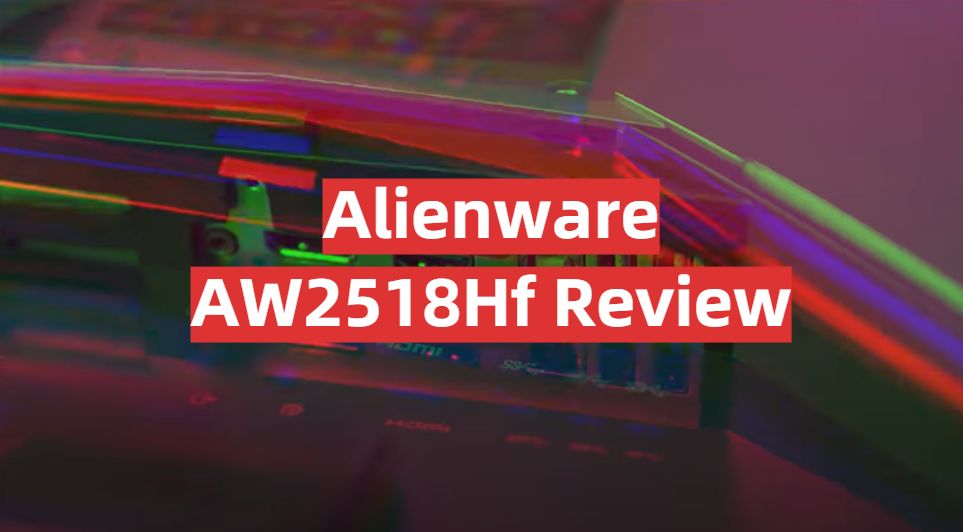
Leave a Reply